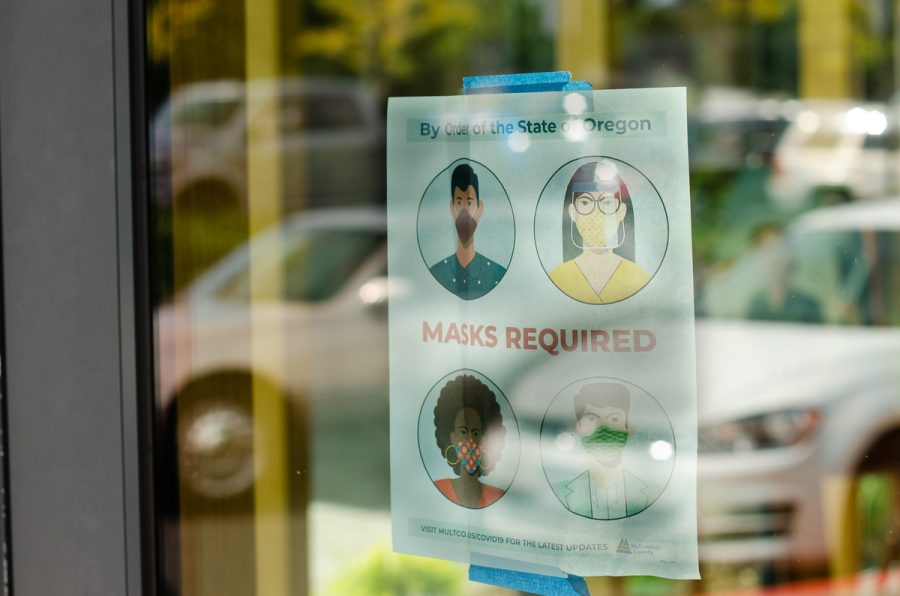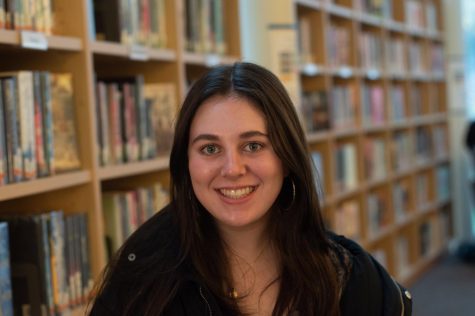Infectious Disease Doctor Dawn Nolt Breaks Down COVID-19 Myths
“If you have a vaccine, then you can really prevent the majority of that infection,” said Dr. Dawn Nolt.
October 20, 2021
The COVID-19 vaccine has been an ongoing political and medical discussion since before it existed. While vaccines for 16-year-olds and above have been available since April, according to La Salle administration, 20% of La Salle students began this year unvaccinated, and 43.4% of the country remains the same.
Hospitals all over the world continue to flood with patients falling ill to COVID-19, most recently due to the highly contagious delta variant. Dr. Dawn Nolt, a pediatric infectious disease doctor at Oregon Health and Science University, discussed some of the most common vaccine myths and explained why getting vaccinated would exponentially benefit our world.
Dr. Nolt’s position as an infectious disease doctor is not new because outbreaks can occur at any time, but the pandemic in particular has made her “much more visible, and put to the forefront” of the medical community, she said, as the entire population has been impacted.
Her experience with the vaccination process has been different from the public because she and her colleagues, “understand what a virus is, how this virus is different from others, and how we can treat it,” she said, whereas most people do not have that same understanding.
When asked about some of the most common vaccine hesitations, Dr. Nolt said that they are broken down into three categories:
The first one of these groups is people who “believe the vaccine is unneeded because the COVID-19 virus is not real,” Dr. Nolt said.
The second category is that the vaccine is not safe. These people “believe they rushed the testing and approval process, haven’t tested it on enough people, and haven’t followed people around for long enough,” Dr. Nolt said.
The third reason people lack vaccine confidence is that they don’t trust authority, according to Dr. Nolt. A common reason that people do not feel confident in the health care system as a whole is that, “pharmaceutical companies make a lot of money, and they are not held accountable,” she said. People also may be hesitant due to previous medical experiences in the health system.
“These can overlap,” Dr. Nolt said, and while there are countless reasons why people don’t feel comfortable getting vaccinated, almost every reason can fit into one of these categories.
There are many factors that go into a person’s decision about vaccination, some of which include “culture, politics, family, medical, and religion,” Dr. Nolt said. “Politics definitely go into it, and that is with any vaccine, not just COVID-19, but this vaccine is the only thing people are talking about.”
As a physician, Dr. Nolt’s job is to try and understand and respect her patients which is why she uses the term “lack of vaccine confidence” when referring to anyone who is not vaccinated. “We try not to say anti-vax, then we used to say vaccine hesitancy, but the CDC is trying to move into the idea of making it more positive and say it’s a lack of vaccine confidence because they want to improve vaccine confidence; it’s better to say you want to improve something than to tear it down,” she said.
Encouraging people to get vaccinated is “not a simple conversation,” Dr. Nolt said. “It’s rare that I’ve had a conversation with someone that I was able to convince them.” Even as an experienced doctor, who knows viruses, who knows infection, and who knows vaccines and the science behind them, Dr. Nolt said it is still incredibly difficult to convince people to receive it when they don’t trust its safety or understand its necessity.
“You can’t push them,” Dr. Nolt said. “You can show them the information, but they have to come to me because no one wants to be told something, they want to seek it out.”
So where can people look for truthful information if they want to do their own research about the vaccine?
Dr. Nolt always advises people looking for more information on vaccines to go to the CDC website. “It shows telecare basics, and patient info,” she said.
Another reliable source, according to Dr. Nolt, is the Children’s Hospital of Philadelphia website because they have a vaccine information center. Dr. Nolt said that despite the course being directed at pediatrics, “they have very good answers, and questions maybe you or I wouldn’t have thought people would ask.”
Dr. Nolt emphasized looking at these sources as “people are leery because it has been very politicized, which has made it exceptionally difficult.”
“Twitter is not reliable,” she said. “I think that’s something to really stress — if someone feels that they need to be knowledgeable they need to look at reputable sites.”
Despite false information on the vaccine that often says otherwise, Nolt stated that “vaccination is the major tool for prevention.” “It’s the gold standard,” she said.
Widespread vaccination, “would stop the virus from transmitting so we could stop the virus from mutating,” Dr. Nolt said. “If everyone were vaccinated right now, we could stop the virus,” she said. Dr. Nolt said the world is heading towards an epidemic, “because we haven’t been able to stop it [from transmitting].”
“There are still a number of people that are unvaccinated or don’t have an immune response to vaccines that it’s just going to keep percolating,” Dr. Nolt said.
Because of this, doctors are now focused on what the delta variant will eventually become. “Vaccines are the safest option, because you drive down the amount of virus that’s still out there,” she said.
While a lack of vaccine confidence continues to exist and prevents people from getting vaccinated, Dr. Nolt assured people that getting vaccinated is the number one way to prevent COVID-19 from transmitting and infecting more people.





